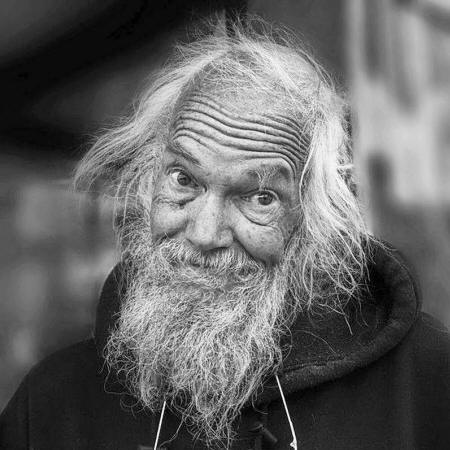|
by Frank M. Wanderer
April 20, 2015
...and you give an honest answer, the
quality of that answer contains the response the question of the
Soul’s maturity.
Reaching these goals always requires time, so future is always important for the immature Soul.
A mature Soul is beyond its desires and
ambitions bound to shapes and forms. The realization that achieving
the goals and ambitions did not bring it real happiness, made it
mature. It may have brought temporary satisfaction, but not lasting
happiness.
The mature Soul is able to abandon its
desires and ambitions, and becomes poor in terms of worldly
property.
Until the desires are satisfied, the Soul will not have a chance to experience the nature of forms, shapes and desires, so it cannot become mature.
That is the only way an Soul is able to turn towards the center of its own existence!
When an immature Soul turns towards
spiritual goals and encounters the requirements of a mind-free
state, it starts to play its mind games with which it attempts to
bridge the unbridgeable gap between itself and real existence.
As opposed to it, the mature Soul does
not insist on itself, it is pleased to surrender to the process that
eventually dissolves it. It gradually abandons identification with
the ego (that is, itself), giving way to the recognition that the
Soul is in fact a Consciousness without a form.
The center of their life is the Ego-dominated mind, which guides and leads them.
What is this Ego? When we are born,
it is not yet there; it is developed in an interaction with our
environment. We survive if we are able to separate ourselves from
the surrounding world, and develop an identity of our own.
This elementary sense of possession is the foundation of the Ego.
The Ego even approaches God from this deep, unconscious instinct of possession:
These features constitute the framework of the Ego.
The identity attached to the Ego is shaped by the answers received from the people in our environment to the question,
The Ego is therefore a social product, and is only able to provide a false answer to the question:
The answers are false, because they are
based upon feedback from other people and not upon our own
experience. The Ego is our identification with ideas, emotions,
actions and experience.
That is why the Ego is unable to do anything with the concepts of emptiness, non-activity.
In the eyes of the Ego, somebody who is
passive, not doing anything is a zombie, and from this aspect
it may be right, if we think of the dead emptiness created by the
mind.
It means reaching beyond the aspect of the mind. The aspect of the mind is not bad, the Ego-dominated mind is not an enemy of the spiritual Seeker accepting this aspect, because the spiritual Seeker is aware that the Ego is not the real center of his/her Self.
The spiritual Seeker will identify with
it to a lesser and lesser extent. The spiritual Seeker will start to
seek the real center, and rely on it to an increasing extent.
At the same time, however, the spiritual
Seeker does not fully identify with the Ego (its thoughts, emotions
etc.)
This is a process that unfolds gradually
in the spiritual Seeker’s life.
From that aspect quiet, emptiness and
non-activity will be filled with an entirely different content, as
the richest of Existence, real knowledge will be brought to the
spiritual Seeker.
Lao Tse asserts that the essence of non-action is the following:
|





